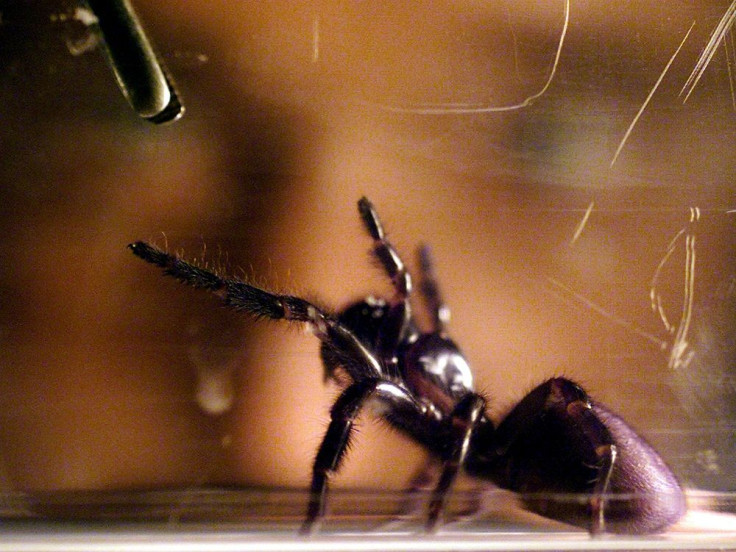Insect expert asks Aussies to capture, not kill deadly funnel-web spiders

Julia Mendezona, head keeper of the Australian Reptile Park, is asking Aussies not to kill the Sydney funnel-web which is the deadliest spider in the world. The reason behind her appeal is the park collects the deadly arachnid species to milk the insect of the antivenene which saves lives.
News.com.au reports that the park’s stock of funnel-web venom is dwindling and Mendezona does not want to experience a shortage of the antivenene. Its stock of anti-venom was used to treat the 65 people in 2014 suspected to have been bitten by the funnel-web spider.
Some of those bite victims almost died, were it not for the park’s stock of antivenene. A bite, without the anti-venom, could kill a person within 15 minutes. Once bitten, a person losses breath, has extreme salivation, tingling lips and losses feelings in the limbs, Mendezona explains.
With summer already started in Australia, the spider is found in many backyards because the funnel-web loves and thrives in warm weather. She adds the male spider’s bite is seven times as deadly as the female’s bite.
The insect expert advises Aussies bitten by the funnel-web spider to apply a compression bandage, call 000 and remain calm because the more stressed a bite victim is, the quicker the venom would spread around the body and reach the vital organs faster.
In 2014, there were 100 such spiders caught by locals and given to the park, but the number is going down which is why Mendezona appeals to Aussies not to give in to their knee-jerk reaction and step on the spider. She prefers that people trap it and bring it to the park.
To catch the spider, coax it with a stick into an old glass jar which should have small air holes in the lid and moist soil inside so the funnel-web would not dry out. But never touch the deadly insect.
It is not just in Australia, but also in the UK that spider season has started, reports Mirror. Some as large as mice are entering homes, including the Australian golden orb spider characterised by a distinctive golden patch on its abdomen.
While it bites and is venomous, it only attacks when provoked. Most of the time, the golden orb would rather spin web in bushes, trees or around flowers. Their webs could be so strong that it could trap small birds and bats which the arachnid eats.
Contact the writer at feedback@ibtimes.com.au or tell us what you think below




















